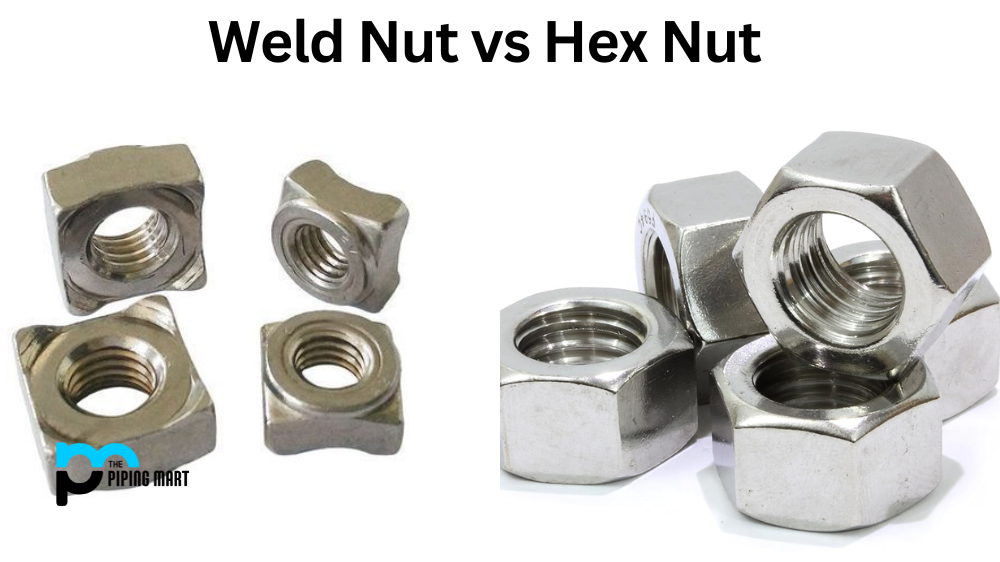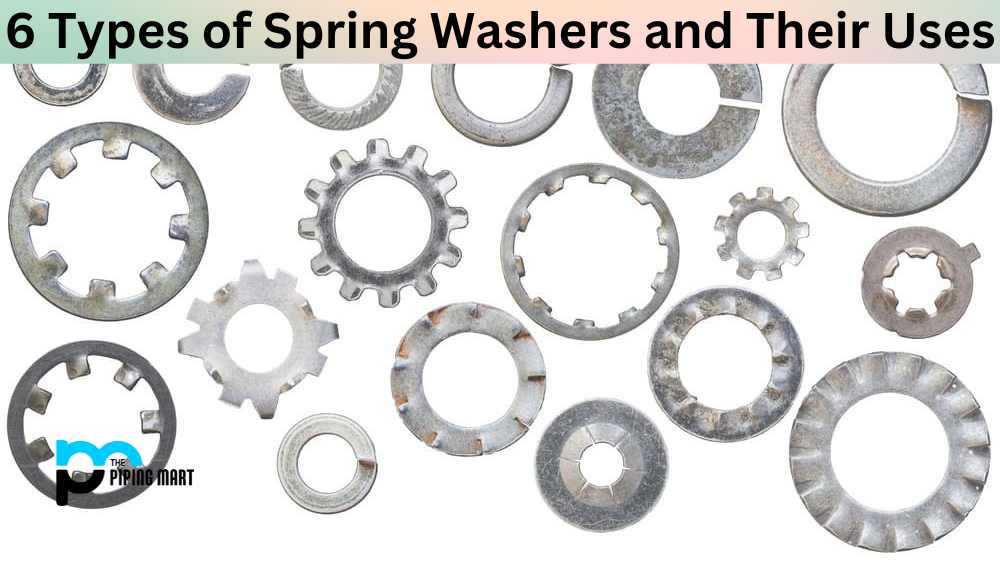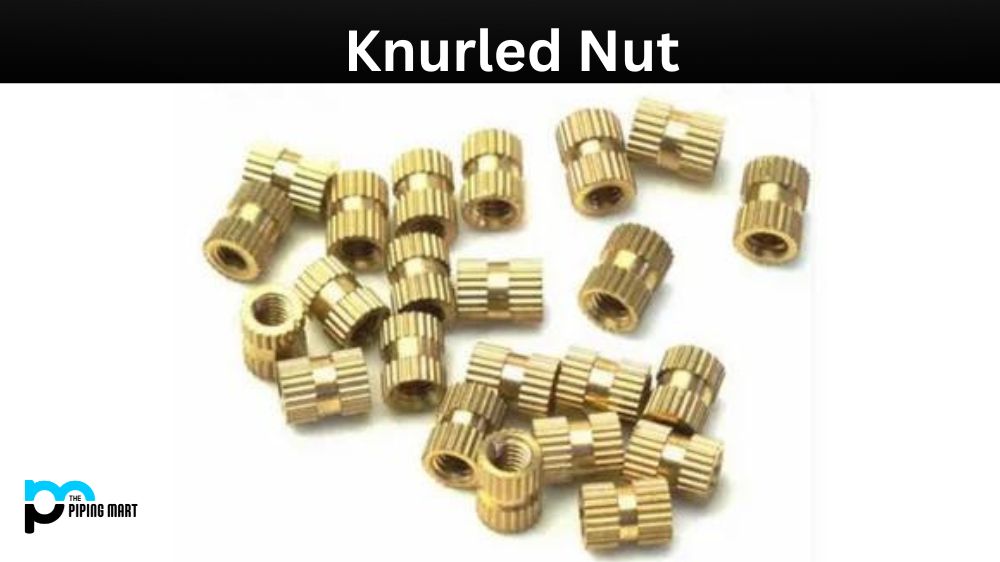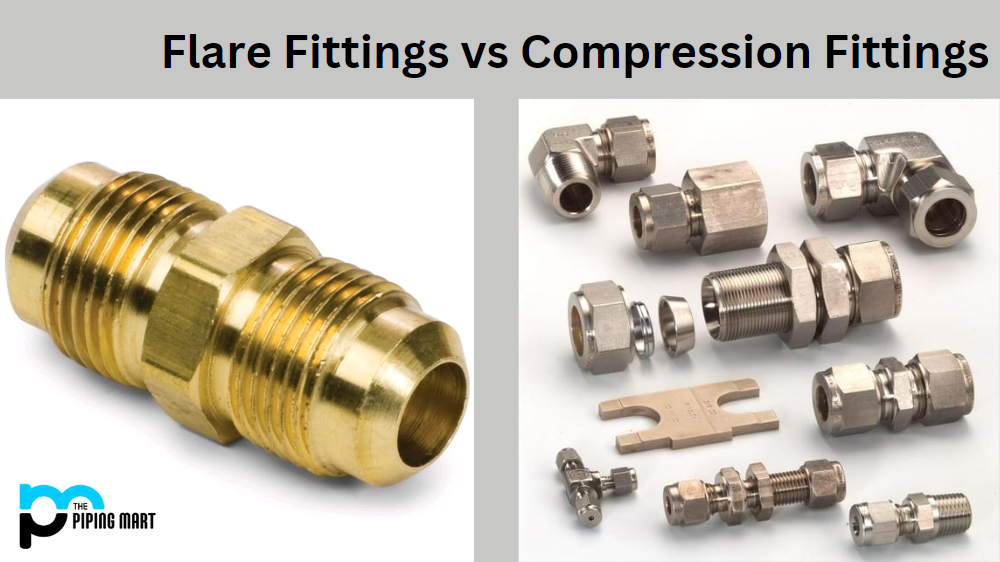Regarding fastening, nuts have played an important role in the mechanical industry. But when it comes to nuts, many different types are available, and choosing the right one for the job can be overwhelming. This post will cover two of the most commonly used types of nuts – weld nuts and hex nuts. We will discuss their differences, applications, and benefits so you can make an informed decision and choose the right nut for your project.
What are Weld Nuts?
Weld nuts, as the name suggests, are welded onto the material. They are also known as projection nuts and are used in applications requiring a threaded connection. Weld nuts provide a stronger and more secure connection than other fasteners, and they work great in high-stress applications. They are commonly used in the automotive and aerospace industries.
Weld nuts are specialized fasteners that are designed to be permanently attached to a metal surface through the process of welding. They consist of a threaded hole, often surrounded by unthreaded material, allowing for the secure attachment of bolts or other fasteners. Weld nuts can come in various shapes and sizes, commonly round, square, or hexagonal.
One key advantage of weld nuts is their ability to provide strong and reliable connections in heavy-duty applications where more than traditional mechanical fasteners may be needed. This is because they become an integral part of the metal structure once welded on and do not rely solely on friction like other fasteners.
Weld nuts are commonly used in automotive manufacturing, aerospace engineering, and construction due to their high strength and durability. They also offer versatility as they can be applied to different materials, including stainless steel, aluminum, and cold-rolled steel.
What are Hex Nuts?
On the other hand, hex nuts are the most popular and easily recognizable by their six-sided shape. They are used in various applications and are easily available in hardware stores. Hex nuts are versatile, easy to use, and provide a strong and secure connection. They are used in construction, machinery, and electrical equipment.
Hex nuts, also known as hexagon nuts, are a type of fastener with six sides and a threaded hole in the center. They are typically used to secure bolts or screws in place, providing strong and reliable connections.
The design of hex nuts allows for better grip and torque during installation, making them ideal for heavy-duty applications. This means they are commonly used in the construction, manufacturing, and automotive industries.
One of the main advantages of hex nuts is their versatility. They come in various sizes ranging from small to large diameters and can be made from different materials such as steel, stainless steel, brass, or nylon. This makes them suitable for various projects with different requirements.
Differences Between Weld Nuts and Hex Nuts
The main difference between weld nuts and hex nuts is their installation method. Weld nuts are welded onto the material, whereas hex nuts are threaded onto bolts or screws. Weld nuts require a special installation process involving welding equipment and skilled labor. On the other hand, hex nuts can be installed with basic tools like a wrench or pliers. Another difference is that weld nuts are permanent, while hex nuts can be removed and reused.
Benefits of Weld Nuts and Hex Nuts
Weld nuts provide excellent strength and security, ideal for high-stress applications. They are permanent and don’t require additional fasteners, which can save time and money. On the other hand, hex nuts are versatile and easy to use. They are available in various sizes and materials, making them suitable for various applications. Hex nuts can be removed and reused, which makes them more cost-effective.
Which Nut to Choose?
The choice between weld nuts and hex nuts depends on the application. If you require a strong and secure connection, and if the connection is permanent, weld nuts are the way to go. However, if you need a versatile and easy-to-use nut that can be removed and reused, then hex nuts are the better option. Ultimately, the choice depends on your project’s specific needs and requirements.
Conclusion:
In conclusion, weld nuts and hex nuts have unique characteristics that make them suitable for different applications. Weld nuts provide strength and security, while hex nuts are versatile and easy to use. The key is to choose the right nut for the job, depending on the specific requirements of your project. This post has given you a better understanding of the differences between weld nuts and hex nuts and helps you decide when to choose the right nut for your project.

Abhishek is a seasoned blogger and industry expert, sharing his insights and knowledge on various topics. With his research, Abhishek offers valuable insights and tips for professionals and enthusiasts. Follow him for expert advice on the latest trends and developments in the metal industry.




